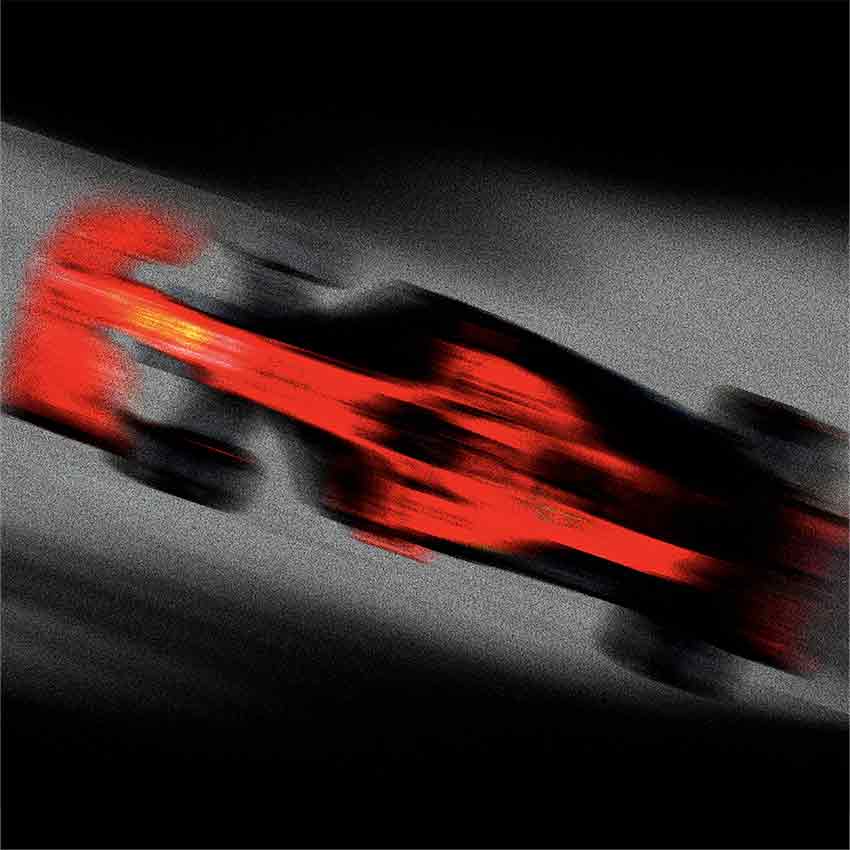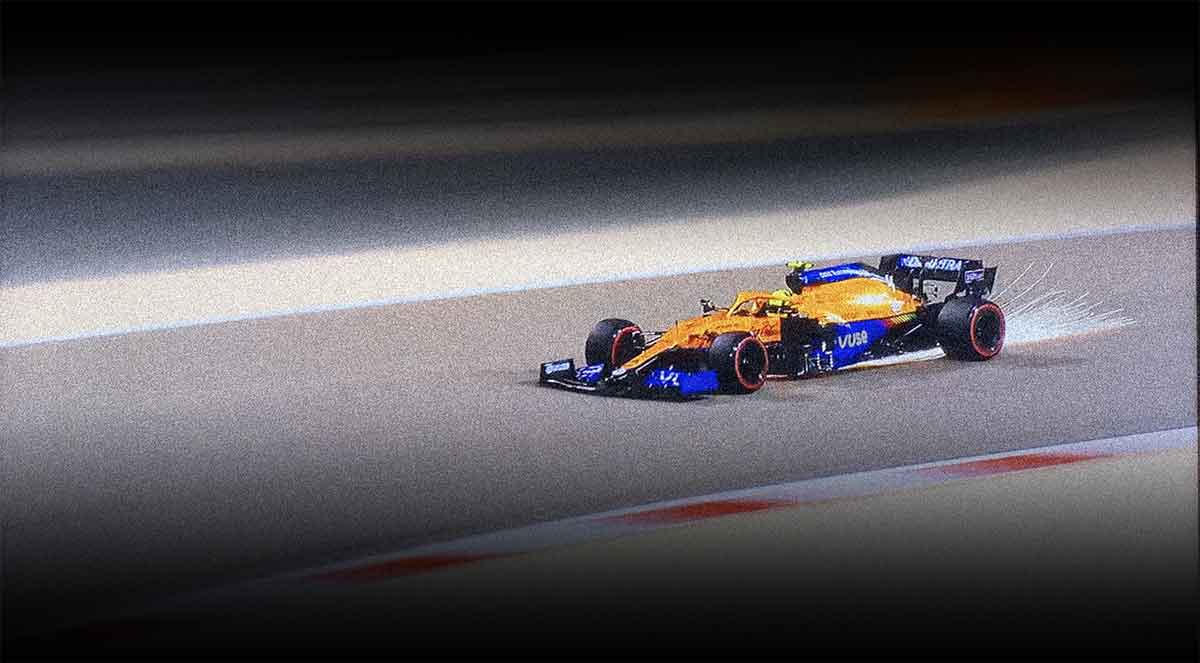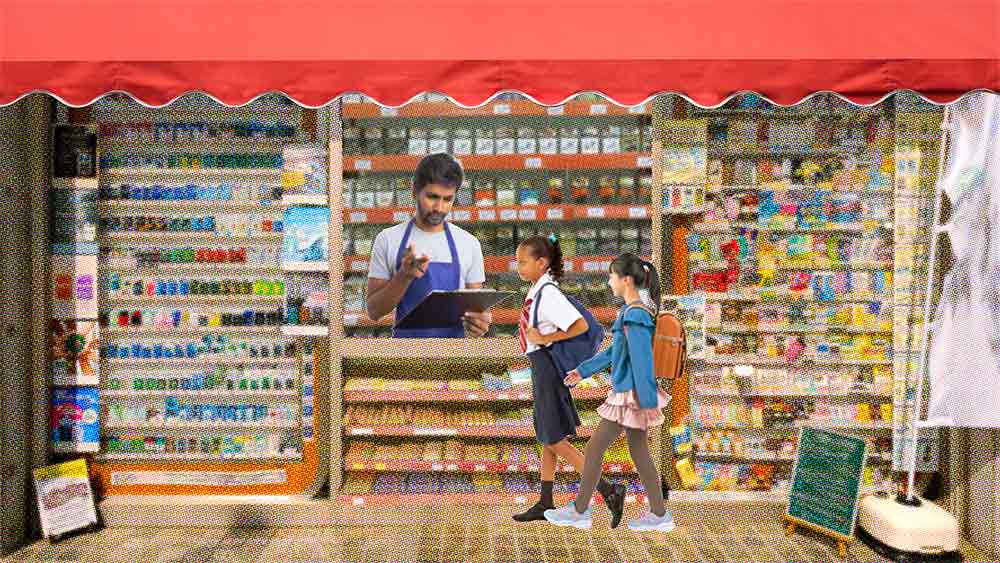- Resources
- News
-
-
Get Email Updates
Sign up for STOP's emails and never miss an update on our latest work and the tobacco industry's activity.
-
Get Funding
Ready to tackle industry interference? You could be eligible for a grant.
-
Share a Tip
Do you have information on tobacco industry misconduct in your country? Let us know.
-
Get Email Updates
Industry Marketing
March 07, 2023

New STOP report reveals that Netflix’s “Formula 1: Drive to Survive” series is helping Philip Morris International and British American Tobacco subvert ad bans and reach young audiences
Read this press release in Spanish or Arabic.
(New York, United States, March 8, 2023) – A new analysis reveals that Netflix streamed more than one billion minutes* of programming that contained cigarette company branding through its partnership with F1 and the “Formula 1: Drive to Survive” series. Philip Morris International (PMI) and British American Tobacco (BAT) also gained exposure for their brands and products in F1 race coverage, social media and other channels. The findings are published in a new report, Driving Addiction: F1, Netflix and Cigarette Company Advertising, based on data from F1 industry monitor Formula Money and published by global tobacco industry watchdog, STOP.
Netflix’s historic reluctance to release its viewing data means this report is the first to estimate the amount of tobacco-related footage in “Drive to Survive” and who is being exposed to it. The report reveals the audience is younger and more affluent and gender-balanced, on average, than F1’s traditional fanbase. The program may be violating broadcasting restrictions on tobacco advertising in many countries around the world.
F1 is growing fast with Big Tobacco along for the ride
The report details how F1’s growth strategy aligns with the cigarette corporations’ interests. New races are scheduled in the Americas and Eastern Mediterranean, which the companies target for growth. F1 is also securing a better broadcast deal in China, which is home to the world’s largest population of smokers.
The sport is growing particularly rapidly in the United States, which will host three races in 2023 and is seeing record race attendees and TV audiences. Vuse, the e-cigarette brand BAT advertises through its F1 sponsorship, is the second-most popular e-cigarette among U.S. youth. PMI has re-entered the U.S. market and will have sole rights to commercialize its IQOS tobacco product in the U.S. from April 2024.
Jorge Alday, Director of STOP partner Vital Strategies, comments, “Formula One wants to grow by reaching a younger audience and that goal lines up squarely with the plans of big cigarette companies. Because it is so hard to regulate streaming platforms, Netflix is the perfect vehicle for Philip Morris International and British American Tobacco to bypass advertising restrictions on a global scale.”
The report shows how F1 helps PMI and BAT subvert a global treaty and national laws. Many countries, like Australia, do not permit any tobacco advertising or sponsorships and others such as India heavily regulate advertising and ban the sale of the industry’s electronic products. F1 race coverage and “Drive to Survive,” however, deliver the cigarette giants’ brands to consumers in these markets. At the 2022 Mexico City Grand Prix, McLaren cars carried Vuse branding even though Mexico banned e-cigarettes and marketing.
Big Tobacco’s newest marketing vehicle: Netflix
“Formula 1: Drive to Survive” has attracted new audiences, including fans who don’t otherwise watch F1 races. PMI and BAT benefited significantly from Season 4’s focus on the rivalry between Ferrari and McLaren, the teams they sponsor, with tobacco company branding appearing in nearly one in three one-minute segments* of broadcast footage. Half of all episodes contained tobacco-related branding in the opening minute and the average viewer will have been exposed to more than 34 minutes of programming containing tobacco-related content—an estimated 1.1 billion minutes of footage consumed globally.*
“As specialists in F1 sponsorship, we knew that ‘Drive to Survive’’s popularity had given sponsors a big boost for their money,” said Caroline Reid of Formula Money, a co-author of the report, “but even we were surprised by the amount of tobacco-related footage. PMI and BAT even benefited from past sponsorship deals: One minute of historic footage featured five different cigarette brands, including PMI’s Marlboro. And BAT notably stretches its McLaren deal away from the racetrack to arts projects and Tomorrowland music festivals, potentially overlapping with those younger Netflix audiences.”

Because it is so hard to regulate streaming platforms, Netflix is the perfect vehicle for Philip Morris International and British American Tobacco to bypass advertising restrictions on a global scale.
Jorge Alday, Director of STOP partner Vital Strategies
Research shows that “Drive to Survive” viewers were younger than F1-only viewers: About 16% of F1 fans are under age 34, while 46% of “Drive to Survive” viewers are under age 34. The show has also been credited with prompting a 30% increase in female interest in the sport. Cigarette company exposure looks set to continue in Season 5 of “Drive to Survive.” Within the first five seconds of the 32-second teaser trailer, a Vuse e-cigarette logo is clearly visible on the sidepod of one of the McLaren cars.
Phil Chamberlain, Deputy Director of the Tobacco Control Research Group at the University of Bath, concluded: “Until tobacco sponsorship is banned in F1 and those bans are enforced, every new fan of F1 risks being targeted. Netflix should remove all tobacco branding, in any form, from ‘Drive to Survive’ before broadcast. If the sport’s management won’t stop driving addiction, it’s time for national governments to monitor F1 race coverage and ‘Drive to Survive’ for breaches of national regulations and take strong action against violations.”
Additional findings:
- PMI and BAT spent an estimated $40 million on Formula 1 in 2022.
- PMI is the biggest-spending tobacco company in F1 history. It is estimated to have spent nearly $2.4 billion since it first entered the sport in 1971.
- If its spending in 2023 matches 2022, BAT will become the second biggest-spending tobacco company in F1 history. It is estimated to have spent $455.9 million through the end of 2022.
Formula 1 is still driving addiction in 2023, as PMI and BAT remain sponsors of Ferrari and McLaren, respectively.
The report is the third in a series released by STOP on tobacco sponsorship in F1. The first examined the resurgence of tobacco spending in the sport and the second, tobacco companies’ reach among young F1 fans on social media. The new report and Executive Summary are available at: Driving Addiction: F1, Netflix and Cigarette Company Advertising.
Please contact the STOP press office for more information or to speak to a STOP spokesperson.
Notes to Editors:
*Methodology for Measuring Tobacco Exposure in “Drive to Survive”
Formula Money adapted an industry standard method applied in academic research, dividing the broadcast content of “Drive to Survive” Season 4 into one-minute segments and recording how many of those segments included tobacco company-related branding. Data on “Drive to Survive” audiences was used to calculate the total number of minutes of streamed content that contained the branding. Further detail of Formula Money’s methodology is available in Appendix B of the report.
About STOP (Stopping Tobacco Organizations and Products)
STOP is a global tobacco industry watchdog whose mission is to expose the tobacco industry tactics that undermine public health. Comprised of a network of academic and public health organizations, STOP researches and monitors the tobacco industry, shares intelligence to counter its tactics, and exposes its misdeeds to a global audience. STOP is funded by Bloomberg Philanthropies as part of the Bloomberg Initiative to Reduce Tobacco Use. For more information, visit exposetobacco.org.
About Formula Money
Formula Money provides data and consultancy about the business of Formula One. Launched in 2007, the reports are a reference tool for companies and individuals researching Formula One sponsorship, race budgets, team finances, broadcast fees and more. Services cover areas from local economic impact, to sponsorship values, to commercial rights. Formula Money reports are invaluable guides to the sport for both potential and existing stakeholders, such as sponsors, team owners, driver managers and race promoters.



